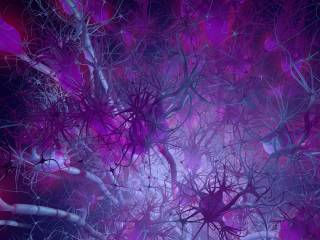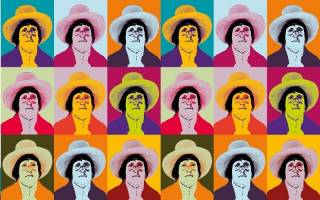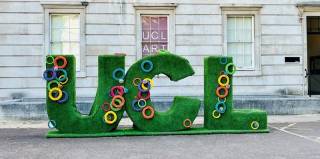Find out more about the history of the department.
UCL was founded in 1826, as the original University of London, to provide university education to all who could benefit by it, irrespective of race, creed, wealth or, later, gender. Chairs of Botany and Comparative Anatomy were established from the start. The Department of Physiology followed in 1828; from it grew various other departments, including the Department of Pharmacology, founded in 1905. Both were the first departments to be established in their discipline in England. Anatomy and Developmental Biology at UCL had a similar pedigree.
Chairs of Anatomy and Morbid Anatomy
Chairs of Anatomy and Morbid Anatomy were also created from the very beginning, principally teaching topographical anatomy to medical students. From these developed the modern Department of Anatomy and Developmental Biology, with its strong emphasis on experimental anatomy. The origins of the Departments of Zoology, Cell Biology, Genetics, Botany and Microbiology can all be traced back to the original Chair of Botany at the College. These were subsequently joined to create the Department of Biology. Biochemistry at UCL can be said to have begun with provision in the Physiology Department for 'chemical physiology' as early as 1909, with the Department of Biochemistry and Molecular Biology becoming an autonomous department after World War Two.
Members of the Faculty awarded the Nobel Prize include Archibald Hill for his work on muscle function, Andrew Huxley for the discovery of the mechanisms underlying the initiation and propagation of the nerve impulse, and Bernard Katz for his research on synaptic transmission. In Pharmacology, James Black received the Nobel Prize for his work on β-blockers and histamine H2 receptor antagonists.
Discoveries and awards
UCL has a high standing in the field of immunology, and two major discoveries were made in the 1950s by immunologists working here. Firstly, it was shown by Sir Peter Medawar, Jodrell Professor of Zoology and Comparative Anatomy, that a person's immune system is responsible for rejecting tissues and organ grafts from another person, a discovery for which he was also awarded the Nobel Prize. Secondly, Roitt and Doniach showed that the immune system can also react against one of the body's own tissues as though it were a foreign graft - which results in the development of autoimmune diseases such as rheumatoid arthritis.
Professor Sir Martin Evans, who worked in the Department of Anatomy & Developmental Biology from 1966 -1979, was awarded the Nobel Prize in Physiology or Medicine in 2007 for his work with Mario R Capecchi and Oliver Smithies on the principles for introducing specific gene modifications in mice by the use of embryonic stem cells. Most recently, in October 2014, Professor John O'Keefe was jointly awarded the Nobel Prize in Physiology or Medicine for his work on discoveries of cells that constitute a positioning system in the brain.
Research departments
The Faculty of Life Sciences enjoys an outstanding international reputation in the areas of developmental biology and ageing, evolutionary and population genetics and structural biology. Each of these areas is comprised of a series of Research Departments working at the cutting edge of their disciplines and all of which can trace their origins to the historic departments described above. These together form the UCL Division of Biosciences. Reflecting this excellence, fourteen current FLS academics have been made Fellows of the Royal Society and a further twenty-five, Fellows of the Academy of Medical Sciences, the highest concentration of such fellowships at UCL.
In January 2012 the School of Pharmacy (founded in 1842) merged with UCL and became a division within the Faculty of Life Sciences. FLS now consists of two large divisions; UCL Biosciences and UCL School of Pharmacy and two research units; the Gatsby Computational Neuroscience Unit and the UCL MRC Laboratory for Molecular Cell Biology.
 Close
Close




